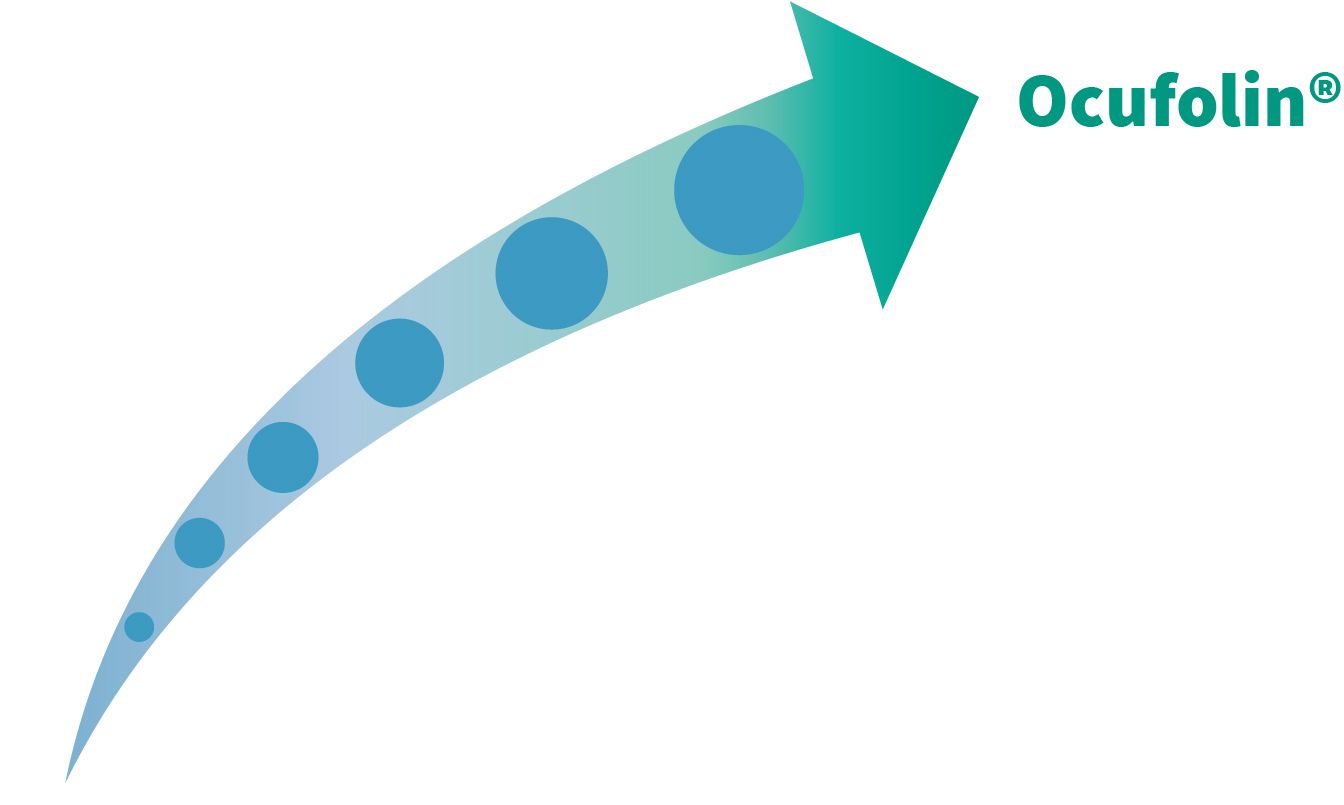Un nuovo approccio per sostenere gli occhi in caso di DR / DMS
Per assicurare l'adeguato apporto nutritivo e sotto controllo medico
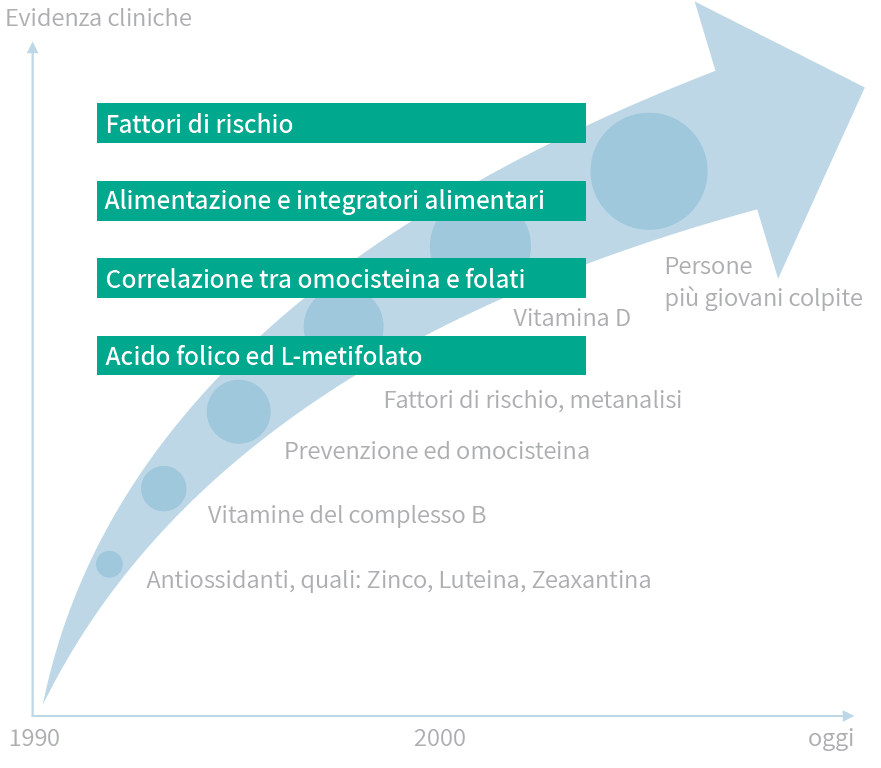
Fattori di rischio per RD et DMS
Fattori di rischio noti
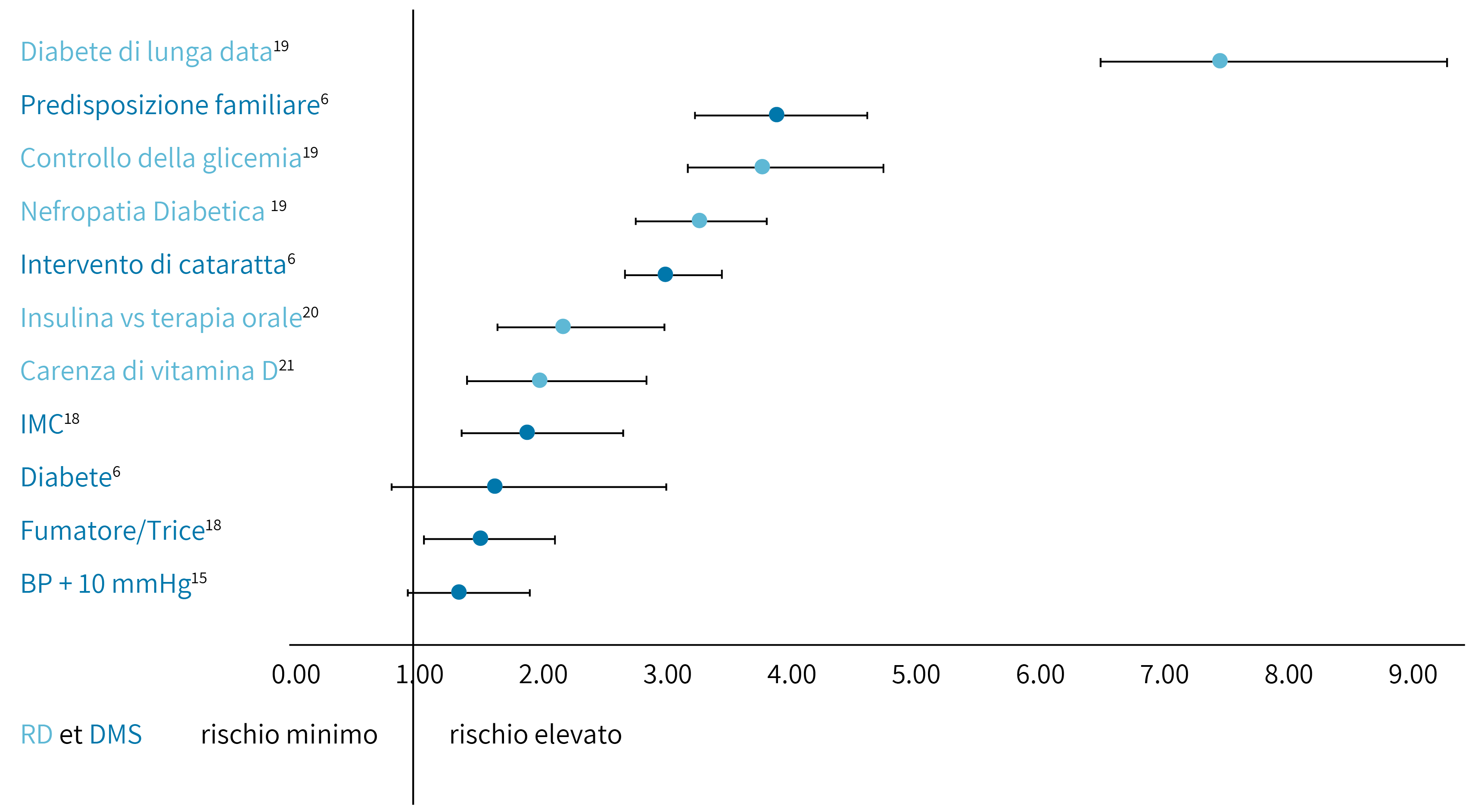
Fonti: 6: Chakravarthy et al., BMC Ophthalmology 2010, 10:31; 18: Areds Report No 19, Ophthalmology. 2005 April ; 112(4): 533–539; 15: Cougnard et al., Invest Ophthalmol Vis Sci, 2013; 54; 1905-1912; 7: Annweiler et al. Maturitas 2016 Jun; 88:101-12; 2: Xu et al., Diagn Pathol. 2014 Sep 26;9:167; 19: Lima et al., Int J Retin Vitr, 2016,2, 21; 20: Liu et al., BMJ Open, 2017, 7, e016280; 21: Luo et al., Nutrients, 2017, 9, 307: Schmidl, Garhöfer, Mol.Vis., 26, (2020), 326
Nouvo fattore di rischio: Omocisteina
“We already know that elevated Hcy levels along with oxidative stress have been associated in the etiology of several vascular diseases that can lead to the development of choroidal neovascular membrans (CNV) in AMD.”
(Singh, USA, 2017)
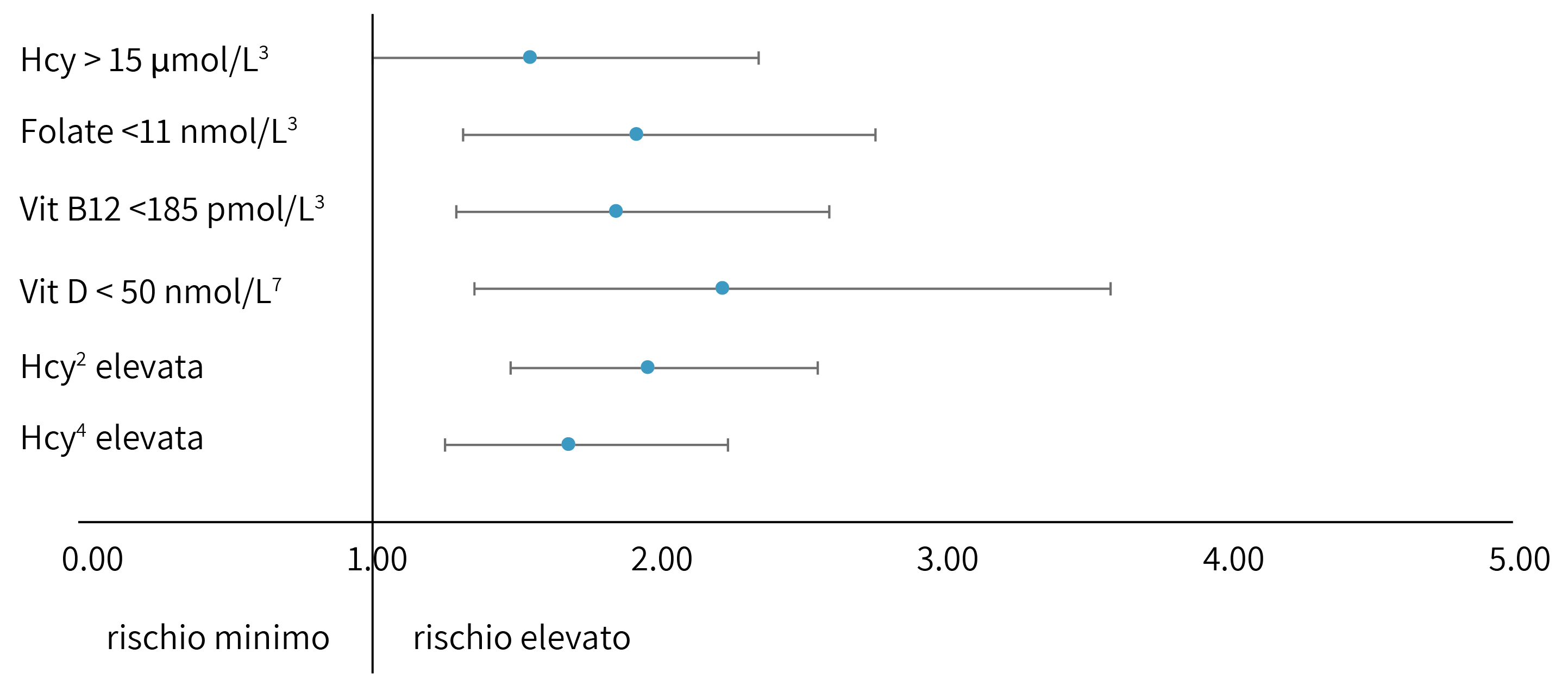
Fonti: 3: Gopinath et al. Am J Clin Nutr. 2013 Jul;98(1):129-35; 2: Xu et al., Diagn Pathol. 2014 Sep 26;9:167; 4: Fotiou et al., Journal of Diabetes Research. 2014;2014:807209
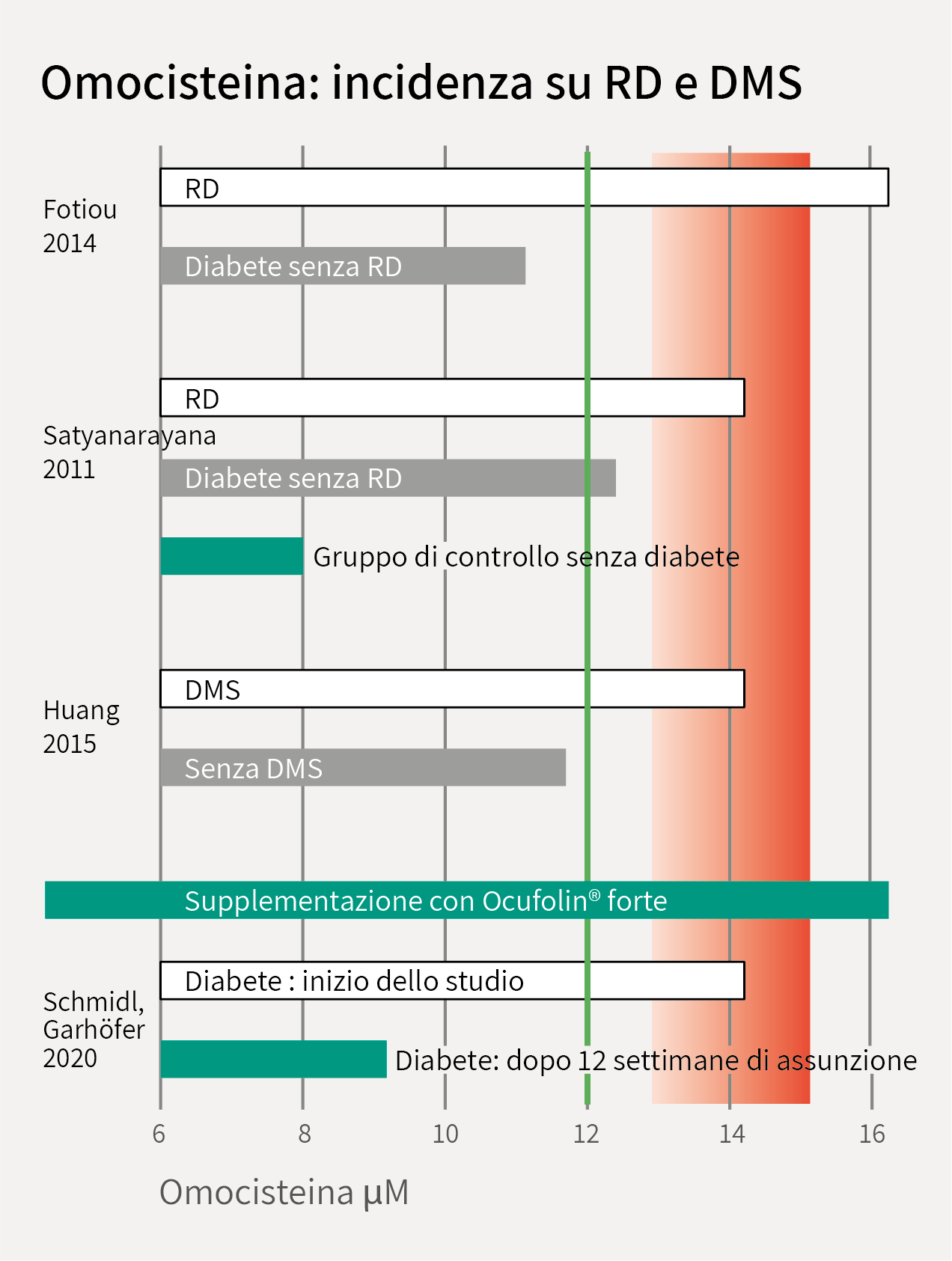
Alimentazione ed integratori alimentari
Riduzione dei livelli di omocisteina
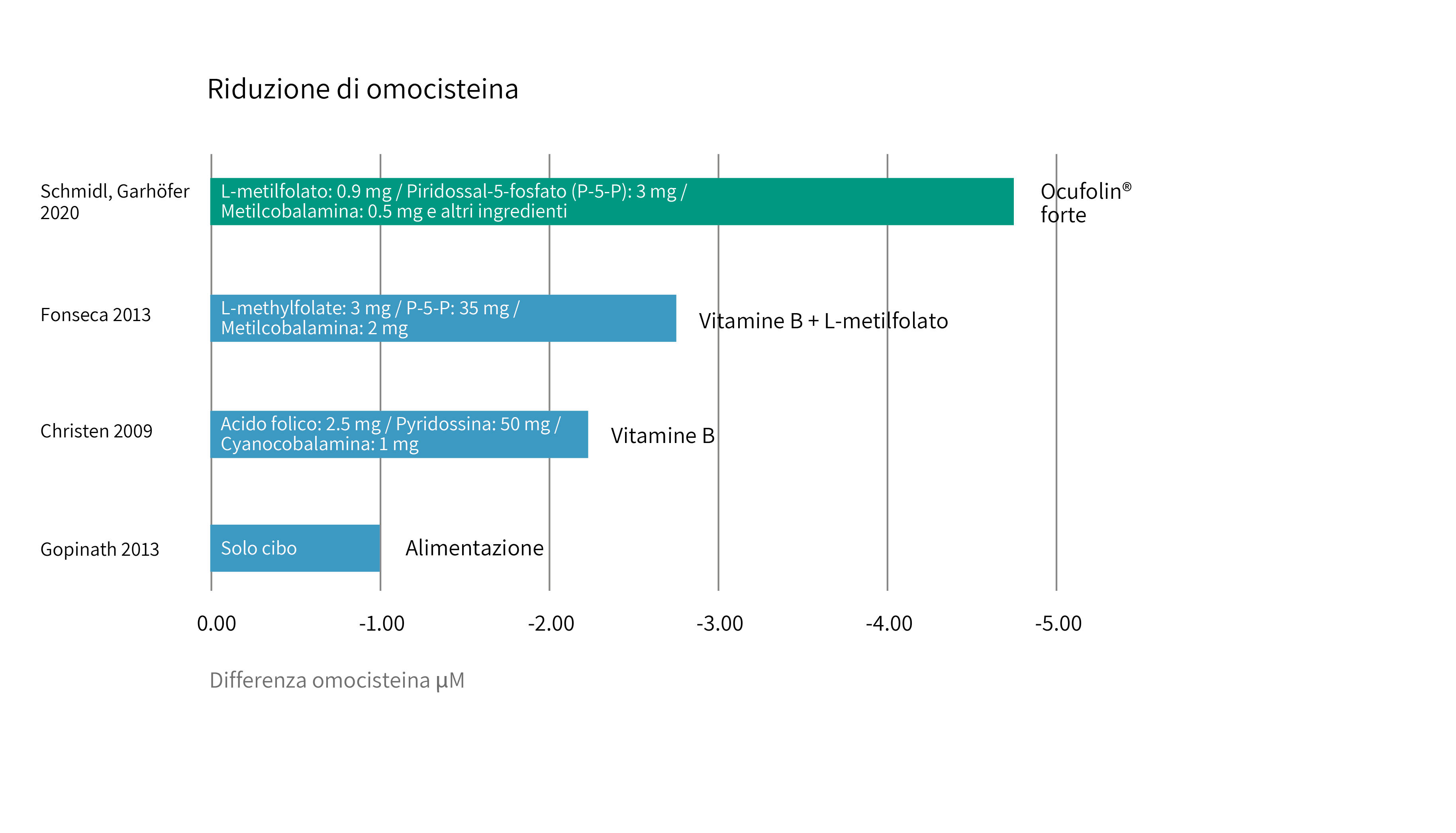
Il livello elevato di omocisteina puo' essere considerato un indicatore per la diagnosi di sindromi e/o anomalie metaboliche.
“Both vascular systems contribute to nourishing of the retina, but there are considerable differences in their fine structure and oxygen content and in their ability to control blood flow during changes of perfusion pressure, in terms of autoregulation” (Pemp & Schmetterer, Austria, 2008).
“Disease-induced nutritional deficiencies often cannot be addressed by nutrient intakes derived from a whole food-based diet alone” (Stover, USA 2017).
“Despite of AMD being a disease in the elderly, we also find subjects with early AMD features based on colour fundus images in young adults under the age of 30 years”. (Brandl, 2016, KORA, n= 2840, Augsburg)
Quellen: Gopinath 2013, Christen et al., Arch Intern Med, 169(2009)335, Fonseca et al., Am J Med, 126(2013)141, . KORAS: Brandl et al, PLoS ONE 11(11),2016;:e0167181. Stover et al., Curr Opin Biotech, 44, (2017), 146; Pemp, Schmetterer, Can J Ophthalmol, 43, (2008), 295; Schmidl, Garhöfer, Mol. Vis., 26, (2020), 326
Correlazione tra omocisteina e folato
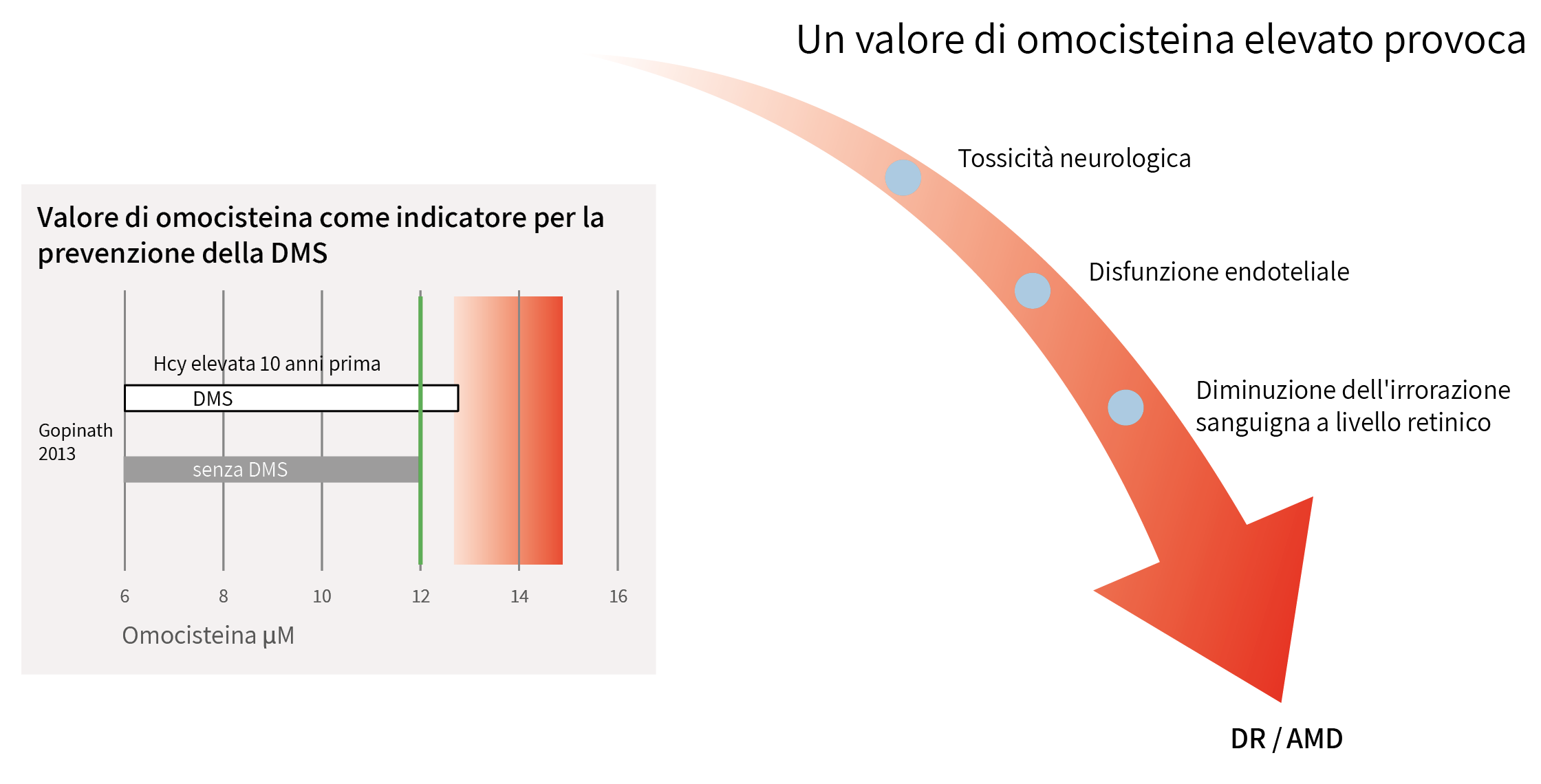
“Elevated serum tHcy and folate and vitamin B-12 deficiencies predicted increased risk of incident AMD, which suggests a potential role for vitamin B-12 and folate in reducing AMD risk.” (Gopinath 2013, Aus, n = 1760, BMES)
“In the eye the vascular endothelium plays a key role in the regulation of vascular tone. It regulates the blood flow in the retina, ONH (optical nerve head) and choroid by releasing agents that are responsible for vasodilation and vasoconstriction and by modifying their release in response to local metabolic needs.” (Resch et al., 2009)
Quellen: Gopinath et al., Am J Clin Nutr. 2013 Jul;98(1):129-35.; Resch et al., Acta Opthtalmologica, 87, (2009), 4
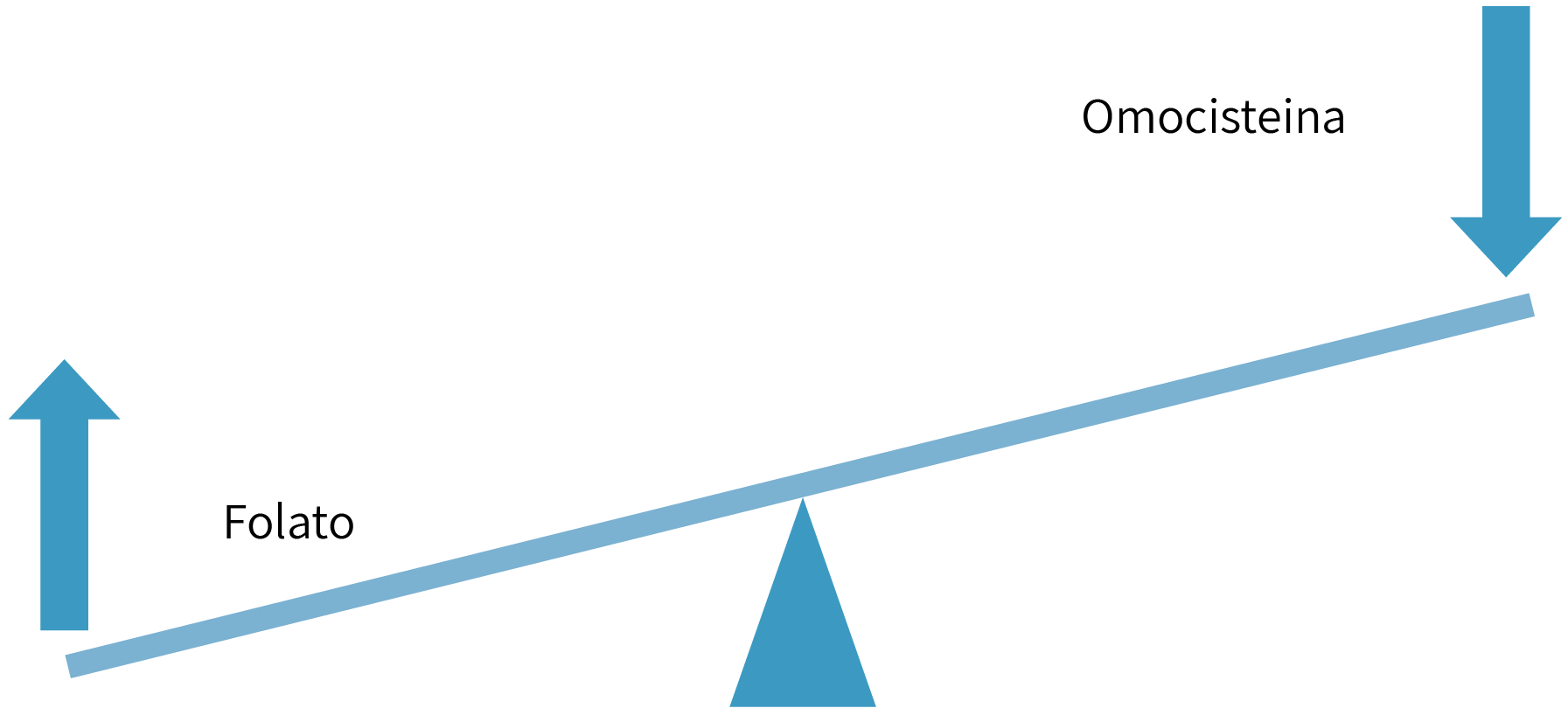
Acido folico ≠ L-metilfolato
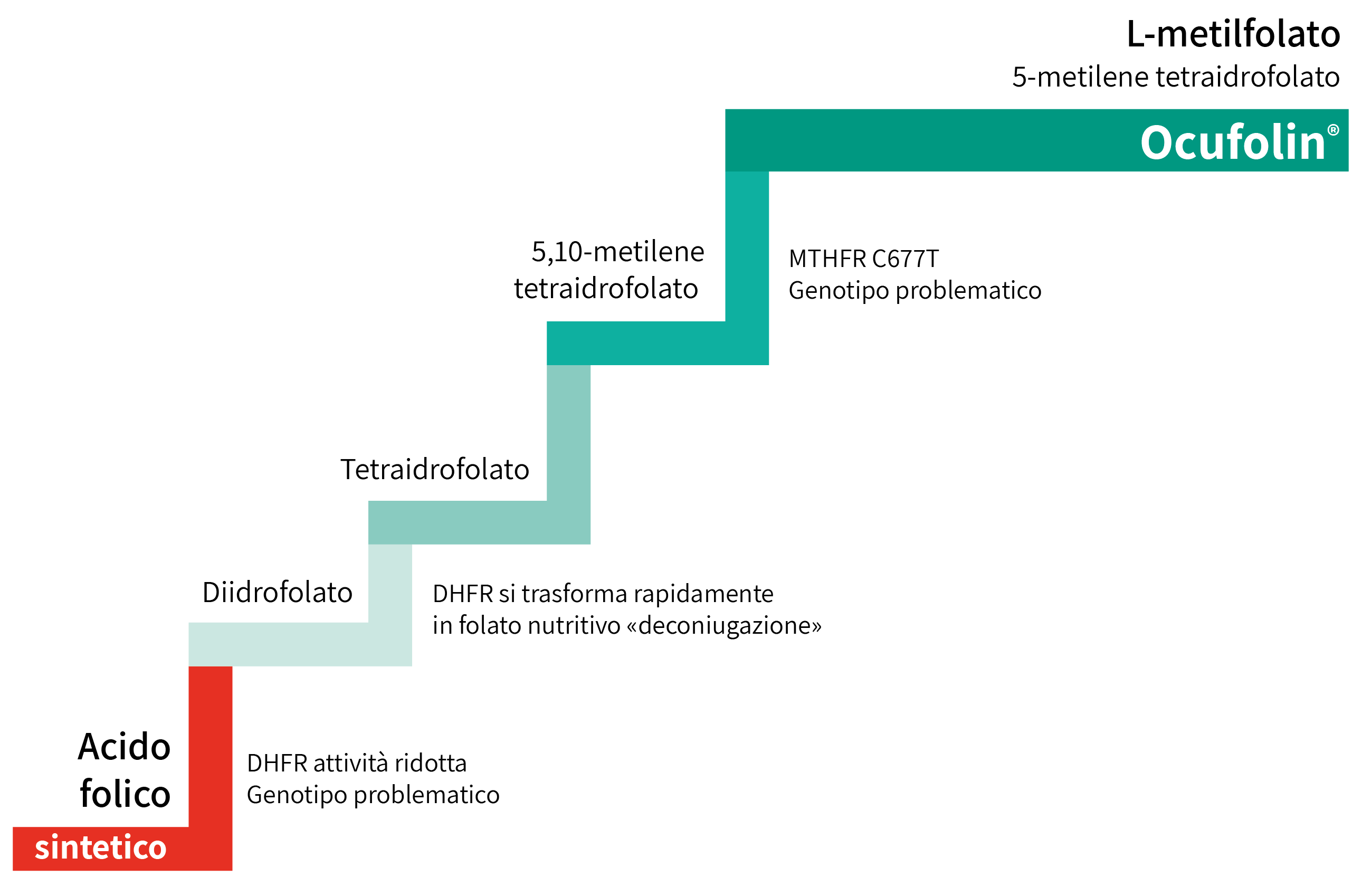
“Potential detrimental effects of high folic acid intake may not be limited to the elderly nor to those with B12 deficiency.“ (Selhub, USA, 2016)
“Furthermore, experimental studies have shown that folic acid can inhibit the transport of 5-methyltetrahydrofolate across the BBB.” (Stover, USA, 2017)
“The L-5-MTHF supplement group had higher (P = 0.003) RBC folate concentrations and higher (P = 0.023) plasma folate concentrations than the folic acid supplement group.” (Henderson, CA, 2018)
Abbreviazioni: BBB: Blood Brain Barrier, RBC: Red blood cells
Fonti: Selhub et al., Biochemie, 126, (2016), 71 ; Stover et al., Curr Opin Biotech, 44, (2017), 146; Henderson et al., J Nutr, 148, (2018), 885
Problematiche multifattoriali necessitano di un approccio multifattoriale
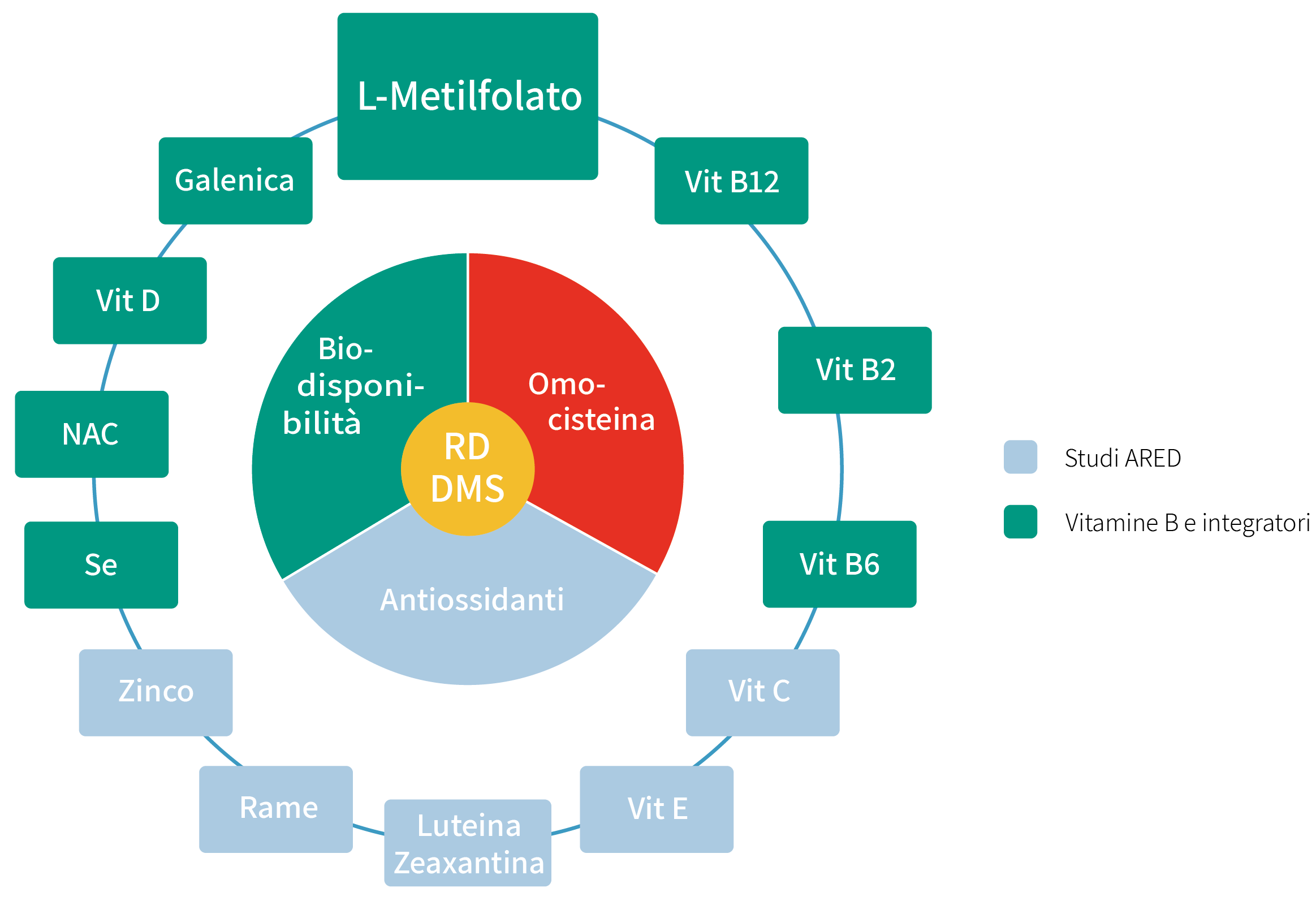
Studi ARED: diminuzione del 25% del rischio di DMS, con vitamina C, E, zinco, rame, luteina e zeaxantina
Fonte: www.areds2.org
 Italiano
Italiano  Deutsch
Deutsch  English
English  Français
Français  Español
Español 